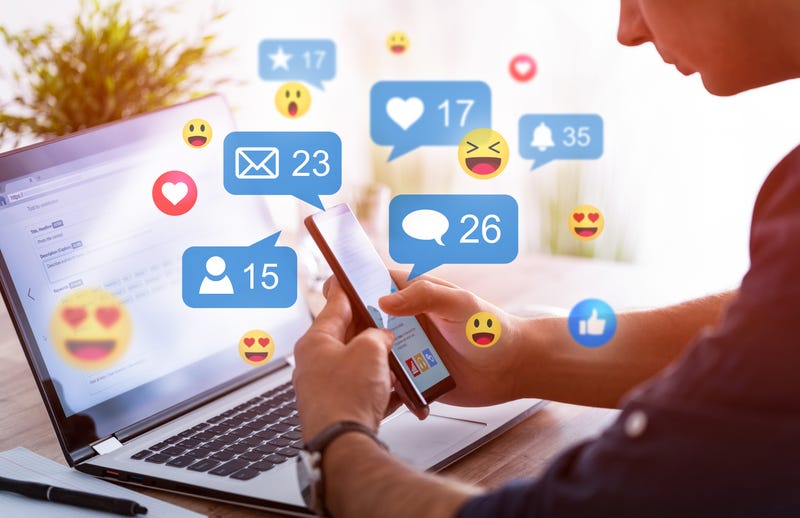
ANN ARBOR, Mich. (WWJ) – Many people have been working remotely since the start of the pandemic, and without true face-to-face interaction, it’s hard to gauge how a co-worker is feeling.
But emoji may provide clues, according to a new University of Michigan study.
U of M researchers recently published a study on whether emoji use in work-related communications can predict remote work burnout.
The study found that workers who regularly use emoji to express emotion – positive or negative – in their work may have better emotional health and are naturally less likely to drop off the platform one year later.
Researcher Xuan Lu told WWJ Health Reporter Dr. Deanna Lites it’s important for people to express their emotions, even in work-related communications.
“Even if you’re using emoji to express negative emotions, that is a good signal,” Lu said.

The researchers also found another interesting correlation between emoji and work – those who don’t use emoji are three times more likely to drop out of remote work.
Researchers involved with the study say they read a lot about how the pandemic is bringing on a lot of mental stress for remote workers, and they wanted to see if they could track emoji use to detect and predict work behaviors.
The team utilized remote work communication data prior to the pandemic – more than a million messages – and implemented machine learning to analyze it. The team wanted pre-pandemic data “to avoid any added stressors of a global health crisis.”
They trained their model to predict potential dropout of remote developers based on their emoji use and found that on average, more than 5% of GitHub posts contain emoji. They also found that certain emoji were used more than others – and “they differed from typical emoji used in social, nonwork communication.”
Ultimately, the study found that workers who regularly use emoji to express emotion – positive or negative – in their work may have better emotional health and are naturally less likely to drop off the platform one year later.
The team found that by using their machine learning model, they could predict dropouts with 75% accuracy.
“You can make fairly accurate predictions of whether people will drop out just based on how they use these pictographs,” professor of information Qiaozhu Mei said. “You don’t even need to look at their work productivity or the actual words they say—just look at how they use emoji.”
Mei notes this work can be helpful for all organizations that support remote workers.
A summary of the study can be found on the U of M website.


